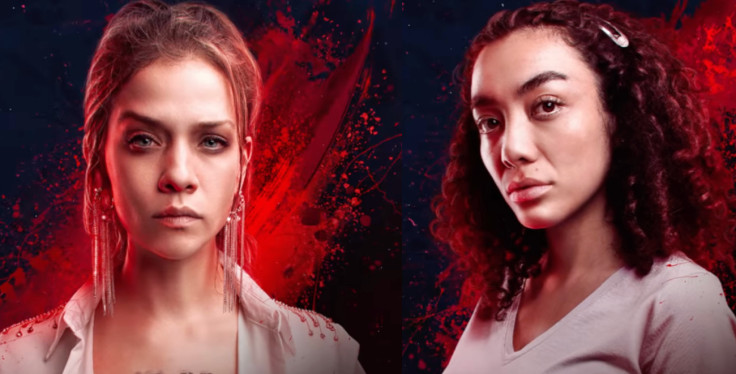
MIAMI -- Mexican actresses Elyfer Torres and Carolina Miranda were just young girls when the original "Mujeres Asesinas" (Killer Women)series aired in Argentina back in 2005. However, both vividly recall their families watching the episodes on TV. This memory left no doubt in their minds about participating in the second season of the series, now produced by the streaming platform VIX. From the outset, they recognized it as an exciting and significant responsibility.
"Mujeres Asesinas" narrates true stories of murders committed by women driven to extremes like murder due to social or personal circumstances. In interviews with The Latin Times, Torres, Miranda, and series creator Marisa Grinstein described their experiences as "necessary traumas" to effectively portray such intense cases on screen.
A Childhood Connection
"When they mentioned 'Killer Women,' just hearing the name gave me a thrill. My mom has watched it ever since the first version was released," Torres recalled. She rose to fame starring in Telemundo's "Yo Soy Betty la Fea" and now portrays Rosario, whose story unfolds in the first episode of this second season, marking a new chapter in the series.
Similarly, Miranda didn't hesitate to accept the challenging role offered to her, ready to delve into playing the most complex character of her career.
Grinstein's connection is deeply personal. Over 20 years ago, she authored "Killer Women," a book detailing the stories of 14 women who committed homicides under various circumstances in Argentina. This book inspired the original series and its adaptations in Mexico. She finds it distressing that "these stories are still relevant today."
Rosario in 'Killer Women 2'
The "Rosario" episode, featuring Torres, delves into the story of a woman imprisoned due to her town's policing deficiencies. Although well-known in Mexico, the specifics are omitted here to prevent spoilers. Yet, Torres's portrayal is so profound and emotive that it resonates deeply, even with those familiar with the case. She captures the distress of a mother pushed to the brink.
Torres felt it was imperative to "dignify this woman's story and comprehend what transpired, channeling all the love and empathy I possess, both as a person and as an artist."
Embodying the character profoundly affected Torres. "The vulnerability transmitted through the script, which I internalized in portraying her, reflects many personal contemplations and emotions. It echoes a shared societal frustration, gnawing at us as we ponder the inadequacies of justice," she said. "It hasn't left me."
Carolina Miranda's Esmeralda
Assisted by a characterization that left her thoroughly satisfied, Carolina Miranda deeply immersed herself in the role of Esmeralda, a law postgraduate who spirals into addiction and desperation. She spent three hours daily in makeup, a process that aided her in embodying Esmeralda's world of despair. "The more they altered my appearance for the worse, the deeper I connected with the character," Miranda shared, illustrating her transformative journey into Esmeralda's psyche.
To further this immersion, the production team played "Algorithm" by Muse before her scenes. Miranda found the physical transformation less challenging compared to grappling with Esmeralda's inner turmoil. Discussing her character's addiction still evokes a sense of anxiety in her.
Marisa Gristein, reflecting on the importance of diverse narratives in the era of female empowerment, advocates for telling all stories, including those of murderers.
"Acknowledging the achievements of female scientists and others doesn't overshadow the need to explore the stories of women labeled as murderers. It's not about the crime, but about understanding the psychological and human journey these women underwent. We aim to present this slice of reality, as others may choose different stories, but it's essential to narrate all facets, not just the heroic or tragic ones."
© 2024 Latin Times. All rights reserved. Do not reproduce without permission.







